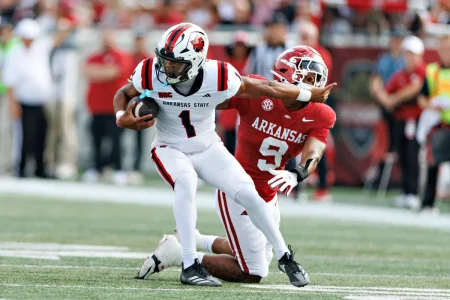The arrest of Luigi Mangione, 26, for the murder of UnitedHealthcare CEO Brian Thompson has ignited a firestorm of public attention, fueled by a bizarre confluence of factors ranging from his perceived attractiveness to the disturbing contents of a purported manifesto. Mangione, hailing from a prominent Maryland real estate family, was apprehended at a Pennsylvania McDonald’s following the shooting in New York City. His subsequent booking photo rapidly circulated online, transforming him into an unlikely object of fascination and even sexual attraction for some social media users. This unexpected reaction has sparked both amusement and outrage across the spectrum of public opinion.
The unexpected adulation of Mangione has been amplified by late-night television hosts like Taylor Tomlinson, who commented on his appearance and the surprising circumstances of his arrest. The fact that a McDonald’s employee recognized him and alerted authorities further fueled the narrative of his striking looks. However, this fascination has been met with sharp criticism, particularly from conservative commentators like Fox News host Lauren Ingraham, who denounced the “liberal wackos” for their seemingly sympathetic portrayal of a suspected murderer. Ingraham argued that such attention elevates Mangione’s profile and potentially endangers others, highlighting the inherent dangers of romanticizing violent acts.
Adding to the already complex narrative, Mangione’s apparent Tinder profile surfaced online, featuring the same topless photo that had circulated widely on social media. The profile, which listed his interests as travel, reading, hiking, and working out, offered a glimpse into the life of the accused before the tragic incident. The profile also mentioned his academic credentials, including a bachelor’s and master’s degree in computer science from the University of Pennsylvania, where he reportedly founded a video game development club. This information, along with the fact that the profile was deactivated or privatized shortly after its discovery, further fueled online discussions about the multifaceted nature of the suspect.
While the public grappled with the incongruity of Mangione’s online persona and the gravity of the charges against him, investigators began piecing together a possible motive. A handwritten manifesto, allegedly found with Mangione upon his arrest, suggested a deep-seated anger towards the health insurance industry. The document purportedly contained justifications for the killing, referencing Thompson’s role in the “expensive” US healthcare system and referring to industry leaders as “parasites.” This manifesto, alongside reports of Mangione’s chronic back pain and its impact on his life, has introduced a new layer of complexity to understanding his alleged actions.
Further insights into Mangione’s struggles with chronic back pain emerged from friends and acquaintances who described the debilitating nature of his condition. They recounted how the pain hampered his physical activities, including surfing, and negatively affected his romantic life. A Goodreads account, seemingly belonging to Mangione, revealed his interest in books about back pain and spine surgery, further corroborating these accounts. This information has led some to speculate about the role of chronic pain and its potential psychological impact on Mangione’s alleged actions. While the connection remains speculative, it highlights the often-unseen struggles of individuals battling chronic pain and the potential consequences for their mental health and well-being.
The case of Luigi Mangione has rapidly evolved into a captivating and disturbing narrative, encompassing themes of social media obsession, the complexities of mental health, and the potential consequences of unchecked anger. The unusual public fascination with his appearance, coupled with the grim realities of the alleged crime and the poignant details of his personal struggles, has created a multifaceted and unsettling story that continues to unfold. As the legal process progresses, the public’s fascination with Mangione will likely remain high, prompting further examination of the various factors that contributed to this tragic event and the broader societal implications it raises. The juxtaposition of his online image, the alleged manifesto, and his reported health struggles present a complex and challenging case study for both the legal system and the public’s understanding of human behavior.














